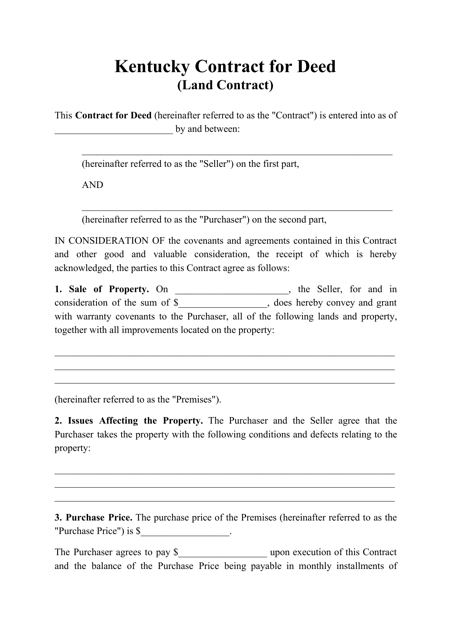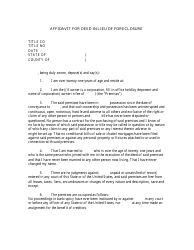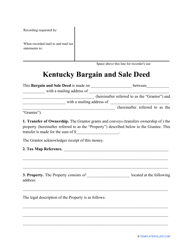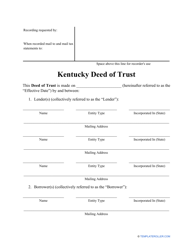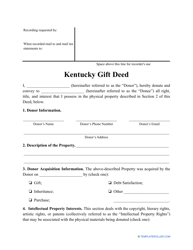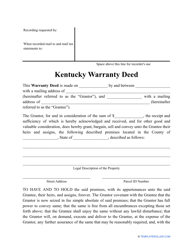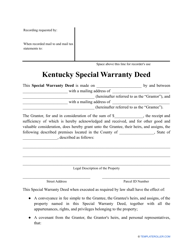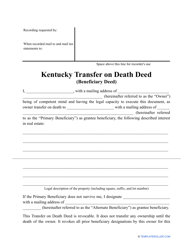Contract for Deed (Land Contract) - Kentucky
A Contract for Deed, also known as a Land Contract in Kentucky, is a legal agreement used in real estate transactions. It is typically used when a buyer cannot obtain traditional financing or when a seller wants to provide financing for the sale of their property. Instead of obtaining a mortgage from a bank, the buyer makes payments directly to the seller, who retains legal ownership of the property until the agreed-upon terms of the contract, including full payment, are met.
In Kentucky, the party selling the property typically files the contract for deed, also known as a land contract.
FAQ
Q: What is a Contract for Deed?
A: A Contract for Deed, also known as a Land Contract, is an agreement for the sale of real estate where the seller provides financing to the buyer.
Q: How does a Contract for Deed work?
A: In a Contract for Deed, the buyer makes regular payments to the seller over a specified period of time, and the seller retains legal title to the property until the buyer completes the payment.
Q: Is a Contract for Deed legally binding?
A: Yes, a Contract for Deed is a legally binding document that outlines the terms and conditions of the sale of property.
Q: Can the buyer take possession of the property in a Contract for Deed?
A: Yes, the buyer can typically take possession of the property immediately upon entering into a Contract for Deed.
Q: What happens if the buyer defaults on the payments?
A: If the buyer defaults on the payments, the seller may have the right to terminate the contract and regain possession of the property.
Q: Can the buyer sell the property before completing the payment?
A: In most cases, the buyer cannot sell the property until they have completed the payment and obtained legal title to the property.
Q: Are there any risks associated with a Contract for Deed?
A: Yes, there are risks involved in a Contract for Deed, such as the buyer losing their investment if they fail to complete the payment or the seller facing legal challenges if they do not comply with the terms of the contract.
